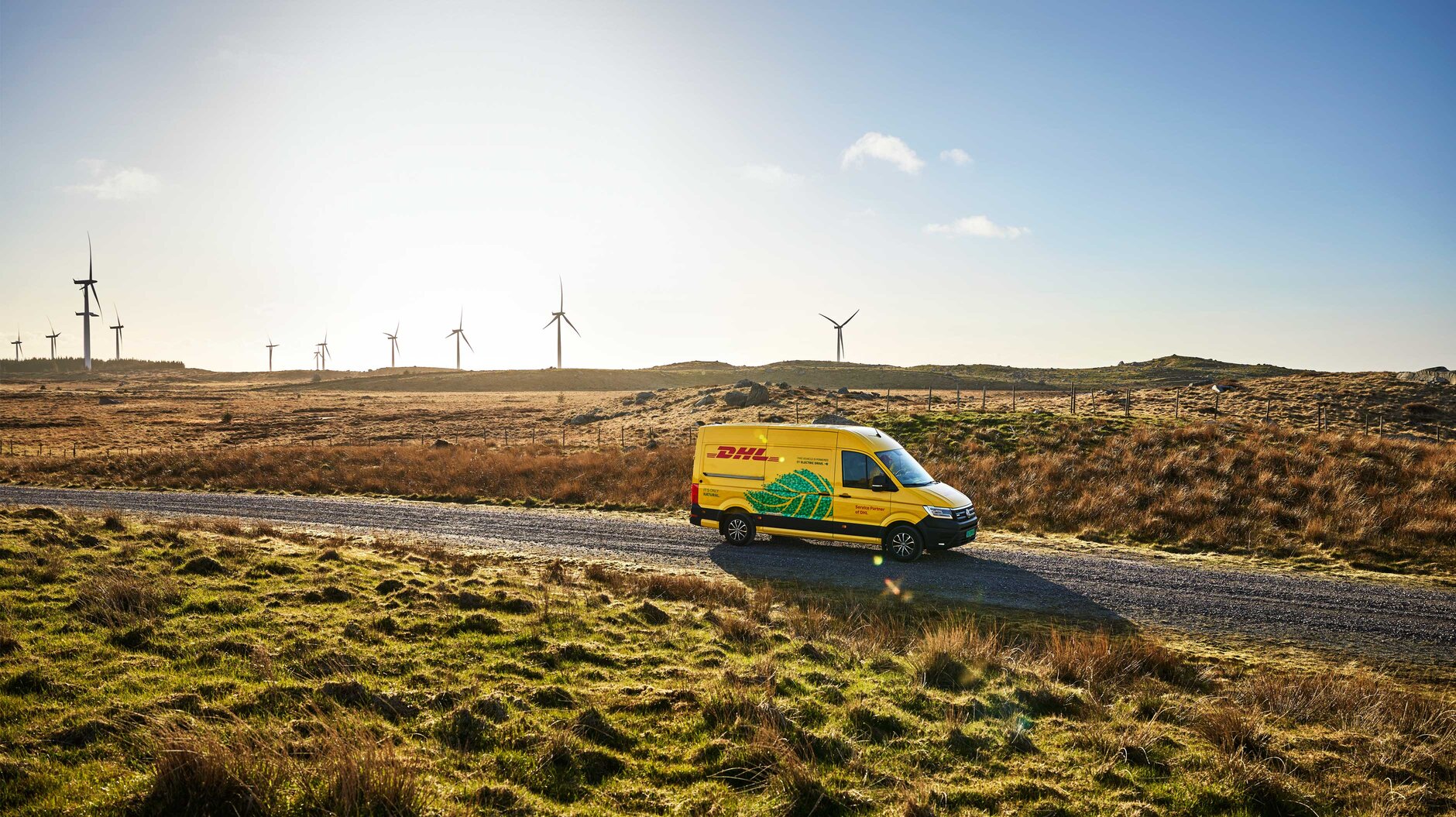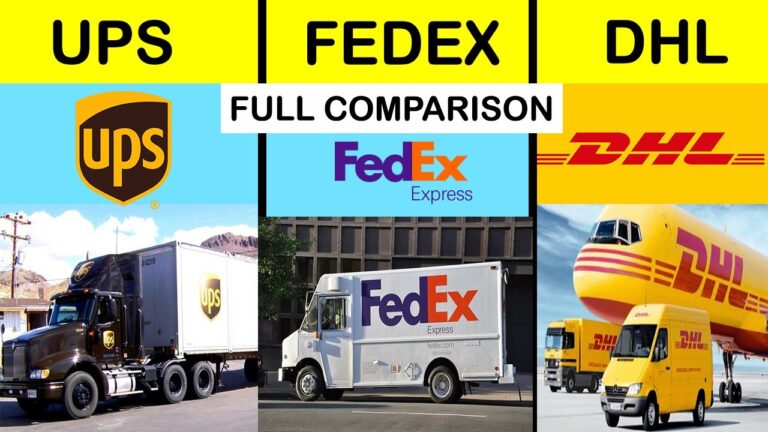Sustainable Shipping: DHL International Parcel’s Eco-Friendly Initiatives
In recent years, the global shipping industry has faced mounting pressure to address its environmental impact. As concerns about climate change and pollution continue to rise, companies like DHL International Parcel have recognized the urgent need to implement eco-friendly initiatives within their operations. In this comprehensive guide, we will explore the various sustainable practices and initiatives undertaken by DHL International Parcel to reduce its carbon footprint and promote environmental responsibility in the shipping sector.
Introduction to Sustainable Shipping
Shipping plays a vital role in the global economy, facilitating the movement of goods across vast distances. However, traditional shipping methods rely heavily on fossil fuels, resulting in harmful emissions and environmental degradation. As awareness of these issues grows, businesses are increasingly seeking sustainable alternatives to minimize their ecological footprint.
DHL International Parcel, a leading provider of logistics and parcel delivery services, has emerged as a trailblazer in the realm of sustainable shipping. Through a combination of innovative technologies, strategic partnerships, and corporate responsibility initiatives, DHL is spearheading efforts to create a more environmentally friendly shipping industry.
Eco-Friendly Fleet Management
One of the primary areas of focus for DHL International Parcel’s sustainability efforts is its fleet management. Recognizing the significant impact of transportation emissions on the environment, DHL has invested heavily in greener alternatives to traditional delivery vehicles.
The company has made substantial strides in transitioning its fleet to electric and alternative fuel vehicles. By embracing electric vans, hybrid trucks, and even experimenting with hydrogen-powered vehicles, DHL aims to significantly reduce its carbon emissions while maintaining operational efficiency.
In addition to upgrading its vehicle fleet, DHL International Parcel has implemented advanced routing and logistics optimization technologies. By optimizing delivery routes and consolidating shipments, the company can minimize fuel consumption and greenhouse gas emissions, further enhancing its environmental sustainability.
Carbon-Neutral Shipping Solutions
In pursuit of its sustainability goals, DHL International Parcel offers carbon-neutral shipping solutions to its customers. Through partnerships with carbon offsetting organizations and the implementation of carbon offset programs, DHL enables businesses and individuals to mitigate the environmental impact of their shipping activities.
Customers can opt to offset the carbon emissions associated with their shipments by contributing to projects that promote renewable energy, reforestation, and energy efficiency. By offering carbon-neutral shipping options, DHL empowers its clients to make environmentally responsible choices and support global efforts to combat climate change.
Investment in Renewable Energy
As part of its commitment to sustainability, DHL International Parcel is actively investing in renewable energy initiatives to power its operations. By harnessing solar, wind, and other renewable energy sources, the company aims to reduce its reliance on fossil fuels and minimize its carbon footprint.
DHL has installed solar panels on its distribution centers and sorting facilities, allowing it to generate clean energy onsite. These solar installations not only help DHL reduce its electricity costs but also demonstrate its dedication to embracing sustainable energy solutions.
Furthermore, DHL International Parcel is exploring opportunities to procure renewable energy from external sources, such as wind farms and solar farms. By transitioning to renewable energy sources, DHL aims to align its operations with the principles of environmental stewardship and contribute to the global transition towards a low-carbon economy.
Packaging Optimization and Waste Reduction
In addition to greening its transportation and energy infrastructure, DHL International Parcel is committed to reducing packaging waste and promoting sustainable packaging practices. The company recognizes that excessive packaging not only contributes to environmental pollution but also incurs unnecessary costs for businesses and consumers.
To address this issue, DHL offers packaging optimization services aimed at minimizing waste and maximizing efficiency. By right-sizing packages, utilizing eco-friendly materials, and implementing innovative packaging designs, DHL helps its clients reduce the environmental impact of their shipments while optimizing space utilization and reducing shipping costs.
Furthermore, DHL International Parcel encourages the reuse and recycling of packaging materials wherever possible. Through education and awareness campaigns, the company aims to instill a culture of environmental responsibility among its employees and customers, fostering a more sustainable approach to shipping and logistics.
Partnerships for Environmental Conservation
In its mission to promote sustainability across the shipping sector, DHL International Parcel actively collaborates with environmental organizations, governmental agencies, and industry stakeholders. These partnerships enable DHL to leverage expertise, resources, and best practices to drive meaningful change and address environmental challenges collaboratively.
Through strategic alliances with conservation groups and non-profit organizations, DHL supports initiatives aimed at protecting natural habitats, preserving biodiversity, and combating climate change. By contributing to reforestation projects, marine conservation efforts, and sustainable land management programs, DHL demonstrates its commitment to environmental conservation and ecological stewardship.
Furthermore, DHL collaborates with regulatory bodies and industry associations to advocate for policies and standards that promote sustainability in the shipping industry. By engaging in dialogue with policymakers, sharing insights, and participating in industry forums, DHL seeks to influence decision-making processes and shape regulations that prioritize environmental protection and sustainability.
Employee Engagement and Training
At the heart of DHL International Parcel’s sustainability efforts are its employees, who play a crucial role in driving positive change and implementing eco-friendly practices within the organization. DHL recognizes the importance of employee engagement and training in fostering a culture of sustainability and empowering its workforce to contribute to environmental conservation efforts.
The company provides comprehensive training programs and resources to educate employees about sustainability principles, environmental best practices, and the importance of reducing their ecological footprint. Through workshops, seminars, and online courses, DHL equips its staff with the knowledge and skills needed to embrace sustainability in their daily work and decision-making processes.
Additionally, DHL encourages employee participation in volunteer activities and community engagement initiatives focused on environmental conservation and sustainability. By organizing tree-planting events, beach cleanups, and other eco-friendly activities, DHL fosters a sense of environmental responsibility among its employees and promotes teamwork and camaraderie in support of common sustainability goals.
Continuous Improvement and Innovation
As a pioneer in the logistics industry, DHL International Parcel is committed to continuous improvement and innovation in its quest for sustainability. The company invests in research and development to explore new technologies, processes, and solutions that can further reduce its environmental impact and enhance its overall sustainability performance.
Through initiatives such as the DHL GoGreen program, the company solicits feedback from customers, partners, and stakeholders to identify opportunities for improvement and innovation in its operations. By listening to input from diverse perspectives, DHL can identify emerging trends, anticipate future challenges, and develop proactive strategies to address them effectively.
Moreover, DHL fosters a culture of innovation and entrepreneurship among its employees, encouraging them to explore creative solutions to environmental challenges and embrace disruptive technologies that can drive positive change. By fostering a spirit of collaboration, experimentation, and risk-taking, DHL cultivates an environment where sustainability innovation thrives and becomes ingrained in the company’s DNA.
Conclusion: Leading the Way Towards a Sustainable Future
In conclusion, DHL International Parcel’s eco-friendly initiatives represent a paradigm shift in the shipping industry towards greater environmental responsibility and sustainability. Through a multifaceted approach encompassing fleet management, carbon-neutral shipping solutions, renewable energy investments, packaging optimization, partnerships, employee engagement, and innovation, DHL is setting new standards for sustainable logistics practices.
As the global shipping industry grapples with the challenges of climate change, pollution, and resource depletion, DHL International Parcel stands out as a beacon of hope and inspiration. By demonstrating that sustainable shipping is not only possible but also economically viable and socially beneficial, DHL is leading the way towards a future where logistics and environmental conservation go hand in hand.
As businesses and consumers increasingly prioritize sustainability in their purchasing decisions, DHL’s commitment to environmental stewardship positions it as a trusted partner and preferred provider of eco-friendly shipping solutions. By leveraging its expertise, resources, and influence, DHL has the potential to drive transformative change across the entire logistics ecosystem, paving the way for a cleaner, greener, and more sustainable future for generations to come.






